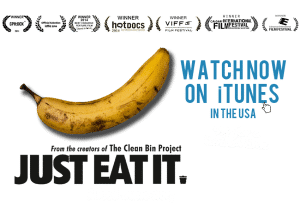30-50% of the food produced in the world ends up in the trash before it reaches the plate. At each stage of the supply chain, part of it is discarded: in the stages of growth, processing, marketing and consumption. In a world where a billion people are hungry and natural resources are dwindling, global waste raises questions. In Israel, 33% of food is thrown away.
Here are links to information on the subject as well as tips for reducing this waste.
Initiatives worth knowing |
|||
|
|
Robin Food: The Restaurant That Will Feed You ScrapsFor the first time in Israel: A restaurant based on raw materials that were almost thrown away is currently being established in Haifa, with the aim of reducing food waste in Israel To the article |
||
|
|
Meet the Social Refrigerator for the CommunityRestaurants often find themselves with leftover food that is edible, but not for sale. In most cases, the same food finds itself in the garbage can, but now an initiative of 4 young people from Tel Aviv seeks to prevent food waste by allocating “social refrigerators” in the streets. “That’s how those who need the products will actually get them .” |
||
|
|
“The challenge is convincing people that they don’t eat garbage.”Prof. Jonathan Deutsch dedicates his life to preventing food waste. The American expert, who is also a successful chef, succeeds in educating the population and the marketing chains, and also developing, together with food companies, products that reuse leftovers: from a snack made from excess beer to sweetener from beetroot peels Article |
||
Studies |
|||
 |
Leket’s Food Waste and Rescue Report in IsraelAccording to estimates of the 2017 National Food Waste Report conducted by Leket Israel and BDO, the volume of food waste in Israel stands at 2.3 million tons, worth NIS 19.5 billion, about 33% of the volume of food production in Israel. Of this, there is a waste of rescuable food, i.e. edible food, totaling about 1.1 million tons and worth NIS 7 billion. |
||
The cost of waste: 1.3 billion tons of food a year are thrown awayA report by the Food and Agriculture Organization of the United Nations paints a grim picture: every year we “lose” about a third of the world’s food produced, a loss estimated at $990 billion ■ In developed countries, between 95 kg and 115 kg of food is wasted per year per person per article |
|||
Articles |
|||
Why can’t we stop throwing away food?Food waste in the world is only increasing, and while half the world is starving, the other half is throwing away and not knowing how to stop. Israel ranks second in throwing edible food into the trash among OECD countries, and each of us can do something. And on the way also save himself thousands of shekels a year and adopt a particularly fun peel snack for the article |
|||
A billion hungry, and you don’t finish off your plate?While a billion people in the world suffer from hunger, about 40% of the food produced is thrown away before it reaches the plate. What causes the enormous waste that exists throughout the human supply chain – from farmers to consumers, in both underdeveloped and developed countries? Where does Israel rank in this graph? And what can be done to make better use of the world’s resources? Story |
|||
| |
The man who cooks meals for 5,000 people from leftover foodBritish historian Tristram Stuart has been the standard-bearer of the global campaign against food waste over the past decade. After organizing mass meals from leftover food, writing two books and lecturing around the world on the subject, his conclusion is clear: Although growing awareness does not prevent food from being thrown away, the solution to the problem is simple – and it is in the hands of consumers Article |
||
Recipes |
|||
| |
Are the tomatoes too ripe for a salad? |
||
Food don’t throw awayIn the spirit of the times, we turned to well-known kitchen people: Ruth Sirkis, Israel Aharoni, Benny Saida and Dalia Penn-Lerner, and asked them to install delicious dishes from the stock of leftovers found in their refrigerator in real time. The result: from fried rice balls to Tuscan bread salad Article
|
|||
| |
Food don’t throw away! BANANA & BREAD PUDDINGWhen I was little, Mom kept scolding us to finish everything served on the plate. “Food don’t throw away! There are millions of hungry children in the world and you play with food??!” That sentence stuck in my head to this day and indeed, nothing was thrown away. The dry buns are saved for breadcrumbs or donated to the birds in the garden, the soft vegetables from last week go into the pie or go as a treat for the horses, and the leftover pots Josie the destroys. Nothing was thrown away. I recycle the worthwhile leftovers into a new meal that everyone eats. I thought you’d want to know. Continue reading
|
||
The Corner of a Gem |
Food is not thrown away but recycled |
||
Tips |
|||
What you can doTips for planning, cooking, storing and educating children to develop a sense of value towards food from an early age. |
|||
Recipe for saving: 9 tips to prevent food wasteMake an organized shopping list, put the new products behind the old ones and check the temperature of the refrigerator: 14% of the food we buy ends up being thrown away – this will prevent unnecessary waste Article
|
|||
| |
Love Food Hate WasteA great website on reducing food throwing, including tips, recipesfor recycling food, calculatorsfor planning a meal according to the number ofdiners and more. The website is in English. Site |
||
Films & Lectures |
|||
| |
The Food We Don’t See | Michal Bitterman | TEDxJaffaWould you feel comfortable emptying your wallet into the trash can? No? But that’s exactly what many of us do on a daily basis. Talk (TED) – Hebrew translation |
||
| |
This will change the way you think about foodA video describing the journey that vegetables and fruits go through. A video about excess consumption and food waste. |
||
| |
Tristram Stewart: The global scandal of food waste,Western countries throw away almost half of their food, not because it is inedible, but because it does not look attractive. Tristram Stewart dives into the shocking statistics of wasted food and calls for more responsible exploitation of the world’s resources. Talk (TED) | ||
 |
A documentary about food throwing – a family that subsisted on food thrown from stores. To the film’s website | ||



